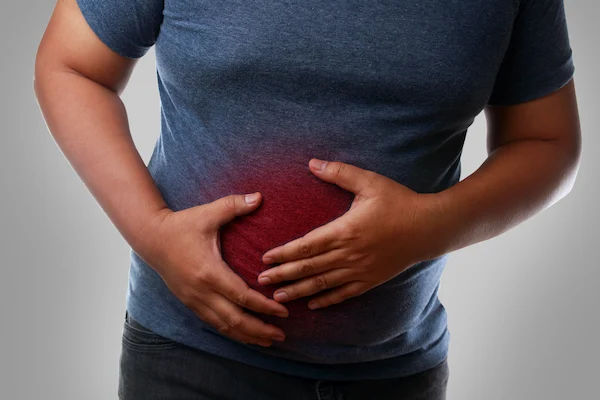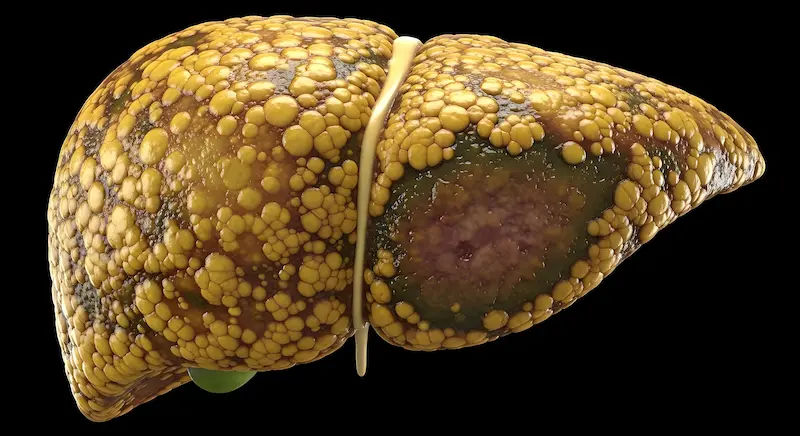Smart Ways to Manage Fatty Liver Disease
Learn effective strategies to manage fatty liver disease naturally. Discover diet tips, weight loss targets, exercises, medications, and monitoring guidelines to improve liver health.

Written by Dr. Siri Nallapu
Reviewed by Dr. Dhankecha Mayank Dineshbhai MBBS
Last updated on 13th Jan, 2026

Introduction
Fatty liver disease happens when extra fat builds up in your liver. For many people, it’s silent—no obvious symptoms—yet it can quietly raise risks for liver scarring, cirrhosis, and heart disease. The encouraging news: in most cases, you can slow, stop, and even reverse fatty liver with the right lifestyle changes.
We’ll cover what fatty liver disease is, including the newer term MASLD, who’s at risk, how it’s diagnosed, and what your test results mean. You’ll learn practical strategies—how much weight to lose, how to structure a fatty liver diet, and which exercises make the biggest difference. We’ll also explore medications and supplements with real evidence, how to manage related conditions like diabetes and high cholesterol, and when to see a doctor. Along the way, you’ll find sample routines, grocery ideas, and expert tips to keep you motivated. If you or a loved one has fatty liver disease, this is your roadmap to a healthier liver and a healthier life.
Understanding Fatty Liver Disease
Here's an overview of fatty liver disease:
Fatty liver disease means 5% or more of liver cells are loaded with fat. Two main types exist: alcohol related fatty liver disease and metabolic dysfunction–associated steatotic liver disease (MASLD), previously called NAFLD. MASLD better reflects the metabolic roots—excess body fat, insulin resistance, and lipid abnormalities.
NAFLD, MASLD, and Alcohol-Related Fatty Liver: What’s Different?
• MASLD (formerly NAFLD) describes fat accumulation not primarily due to alcohol. It often occurs with abdominal obesity, type 2 diabetes, high triglycerides, or high blood pressure.
• Alcohol related fatty liver disease is driven by alcohol intake. Even moderate intake can worsen liver fat in susceptible people. Some individuals have mixed causes.
• A subset of people with fatty liver develop inflammation and cell injury (NASH), which raises the risk of fibrosis and cirrhosis.
How Fat Builds Up in the Liver
Insulin resistance, excess calories from refined carbohydrates and sugary drinks, and sedentary time promote de novo lipogenesis—your liver turning carbs into fat. Over time, fat droplets stress liver cells, triggering inflammation and scarring. Reduce the drivers through weight loss, better diet, and more activity to help your liver shed fat and heal.Consult Top Specialists
Who Is at Risk? Causes and Risk Factors
Here's who is at risk:
Fatty liver disease is common, affecting about one in four adults worldwide. Risk rises with abdominal obesity, type 2 diabetes or prediabetes, dyslipidaemia, high blood pressure, and metabolic syndrome.
Metabolic Syndrome, Type 2 Diabetes, and Obesity
Metabolic syndrome, a cluster of high waist, blood pressure, glucose, triglycerides, and low HDL, is strongly tied to fatty liver. People with type 2 diabetes have higher odds of NASH and advanced fibrosis. Waist size can be a stronger predictor than BMI.
Genetics, PCOS, Sleep Apnoea, and Other Contributors
Family history, certain gene variants, PCOS, hypothyroidism, obstructive sleep apnoea, and some medications can contribute. Rapid weight gain, high fructose intake, and ultra processed foods also play a role. Early screening may be advised for those with multiple risk factors.
Symptoms and Red Flags to Watch
Here's what to look out for:
Most people with fatty liver disease feel fine, which is why screening is important. Some may notice fatigue, mild right upper abdominal discomfort, or a feeling of fullness.
Commonly Silent, But Don’t Ignore These Signs
• Unexplained fatigue or brain fog
• Elevated liver enzymes on routine blood tests (ALT, AST, GGT)
• Central weight gain or rising waist size
• Dark, velvety skin patches on the neck or underarms
When It’s Urgent
Seek medical care promptly if you develop:
• Jaundice (yellowing of skin/eyes), dark urine, pale stools
• Significant leg or abdominal swelling
• Vomiting blood or black stools
• Confusion or severe fatigue
If symptoms persist beyond two weeks, consult a doctor online with Apollo 24|7 for evaluation.
How Fatty Liver Disease Is Diagnosed
Here's how diagnosis is made:
Diagnosis starts with history and examination, liver blood tests, and imaging. Ultrasound can detect steatosis; newer tools estimate fibrosis risk without a biopsy.
Blood Tests, Ultrasound, and FibroScan
• Blood tests: LFTs may be normal or mildly elevated. Doctors also check fasting glucose, HbA1c, and lipid profile.
• Ultrasound: first line to detect liver fat. It’s painless and widely available.
• FibroScan: measures liver stiffness and fat, helping stratify risk without a biopsy. Apollo 24|7 offers home collection for relevant tests.
Fibrosis Scores and When Biopsy Is Considered
Scores like FIB 4 and the NAFLD Fibrosis Score combine age, enzymes, and platelets to estimate fibrosis risk. Low scores indicate low risk; high scores may prompt further testing. Biopsy is reserved for uncertain diagnoses or staging.
Why It Matters: Risks and Progression
Here's why fatty liver disease matters:
Most people will not develop severe liver disease, but some do. Main concerns include NASH, fibrosis, cirrhosis, liver cancer, and higher cardiovascular risk.
From Fatty Liver to NASH and Cirrhosis
• Steatosis: fat in the liver with little inflammation
• NASH: fat plus inflammation and cell injury
• Fibrosis: scarring from mild to severe
Weight loss of 7–10% can improve NASH and regress fibrosis in some cases.
Heart Disease and Overall Health
Fatty liver often signals systemic metabolic stress. Improving liver health usually benefits blood sugar, lipids, and blood pressure.
Weight Management: The Foundation of Reversal
Here's how to manage weight effectively:
Weight loss is the most effective treatment. Even 5% loss reduces liver fat; 7–10% improves inflammation; ≥10% may improve fibrosis.
Evidence-Based Weight-Loss Targets
• 5% total body weight: reduces steatosis
• 7–10%: improves NASH
• ≥10%: may regress fibrosis
Set realistic timelines (0.5–1% body weight per week).
Smart, Sustainable Strategies
• Half plate non starchy vegetables, quarter lean protein, quarter whole grains/starchy veg
• Prioritise protein to reduce hunger and preserve muscle
• Track hidden calories from sugary drinks and snacks
• Batch cook meals and use visual cues for healthier choices
If progress is limited, consult a doctor online with Apollo 24|7.
Eating for a Healthier Liver
Here's how to eat smart for your liver:
A Mediterranean style diet improves liver fat and metabolic health.
Mediterranean-Style Patterns and Indian Plate Swaps
• Choose whole wheat/millet roti, brown rice, dals, chana, rajma, paneer/tofu, fish, eggs, curd, nuts, and seeds
• Add leafy greens, crucifers, tomatoes, onions, cucumbers, gourds, and herbs/spices
• Cook with mustard, olive, or groundnut oil; limit ghee and butterConsult Top Specialists
Sugar, Fructose, and Ultra-Processed Foods
Avoid sodas, fruit juices, sweets, white bread, and packaged snacks.
Practical Grocery List and Meal Ideas
• Staples: whole grains, pulses, vegetables, fruits, eggs, fish/chicken, tofu/paneer, curd, nuts, olive/mustard oil, coffee/tea
• Meals: oats with curd and nuts, vegetable omelette with whole grain toast, dal + sabzi + roti, grilled fish with salad, chana salad bowls, sambar + idli
Move More: Exercise That Protects Your Liver
Here's how exercise helps:
Exercise reduces liver fat independently of weight loss and maximises results with diet.
Cardio, Strength, and NEAT
• Cardio: brisk walking, cycling, swimming, or interval training
• Strength: squats, push ups, rows, lunges, presses (2–3 sets of 8–12 reps)
• NEAT: daily steps, stairs, walking breaks; aim for 7,000–10,000 steps/day
Weekly Plan You Can Stick To
• Mon/Wed/Fri: 30-minute brisk walk + 15-minute strength routine
• Tue/Thu: 20-minute intervals or cycling
• Weekend: hiking, swimming, yoga, or sports
Short walks after meals (“exercise snacking”) also improve liver health.
Medications, Supplements, and Emerging Treatments
Here's what may help beyond lifestyle:
What’s Proven, What’s Promising
• Vitamin E: may improve NASH in non-diabetic adults but has risks
• Pioglitazone: can improve NASH, especially in type 2 diabetes
• GLP 1 receptor agonists: lead to weight loss and improved liver fat
• Bariatric/metabolic surgery: durable improvement in eligible patients
• Omega 3s: reduce triglycerides; effect on NASH less clear
What to Avoid
High dose herbal supplements, unregulated weight-loss pills, unnecessary acetaminophen combinations.
Managing Related Conditions
Here's how to manage associated conditions:
Diabetes, Lipids, Blood Pressure, and Sleep
• Individualised HbA1c goals; consider liver-friendly medications
• Statins are safe in fatty liver and reduce cardiovascular risk
• Blood pressure: follow recommended targets
• Sleep: treat obstructive sleep apnoea and improve hygiene
Vaccinations and Liver Health
Hepatitis A and B vaccination is advised. Annual flu and COVID 19 vaccines support overall health.
Alcohol, Toxins, and Medication Safety
Here's what to know:
Alcohol can worsen liver fat. Many clinicians recommend avoiding it until liver health improves.
How Much Is Too Much?
No universally safe level exists for MASLD. Abstaining is safest if enzymes are elevated or fibrosis is present.
Safer Choices and Labels to Check
Minimise acetaminophen combinations, avoid unnecessary herbal blends, and check medication safety for the liver.
Special Populations: Kids, Pregnancy, Older Adults
Pediatric Considerations
Focus on family-based habits: whole foods, fewer sugary drinks, active play, proper sleep. Early lifestyle support can reverse fatty liver in many children.
Pregnancy and Planning
Pre-pregnancy weight optimisation improves outcomes. Coordinate with obstetrician and hepatologist; screen for gestational diabetes.
Older adults may present with normal BMI but visceral fat. Gentle strength training preserves muscle and insulin sensitivity.
At-Home Tracking, Habits, and Mindset
Sleep, Stress, and Time-Restricted Eating
• Sleep 7–9 hours
• Stress: brief mindfulness, walking, or breathing exercises
• Time-restricted eating may reduce liver fat
Building Habits That Last
• Habit stacking: walk after meals
• Visual cues: keep healthy foods visible
• Track waist, weight, steps, and labs
Default grocery basket reduces decision fatigue and supports consistency.
Myths vs Facts: Clearing Up Confusion
• Only obese people get fatty liver: false
• Liver cleanses fix fatty liver: false
• Statins damage the liver: false
• You can’t reverse fatty liver: false
When to See a Doctor and What to Ask
Monitoring Timeline and Test Frequency
• Screening: LFTs, ultrasound, or FIB 4
• Follow-up: LFTs every 3–6 months, metabolic labs every 3–6 months, fibrosis assessment every 6–24 months
• Ask about vaccines, medication review, diet/exercise plans
Getting Help and Telehealth Options
If symptoms persist, enzymes rise, or fibrosis scores are high, consult a hepatologist or gastroenterologist. Apollo 24|7 offers online consultations and home lab collection for monitoring.
Conclusion
Fatty liver disease is common, often silent, and tightly linked to overall metabolic health. That’s the challenge—but also the opportunity. The same steps that heal your liver—losing 7–10% of body weight, eating a Mediterranean style diet, moving more, sleeping better, and addressing blood sugar, blood pressure, and lipids—will also boost your energy, protect your heart, and improve quality of life. You don’t need perfection to make progress; you need a plan you can repeat. Start by cutting sugary drinks, adding protein and vegetables to every meal, and building a simple weekly activity routine. Track your wins: waist, weight, steps, and labs. Partner with your healthcare team to personalise medications and monitoring. If you need support or convenient testing, consult a doctor online with Apollo 24|7 and use home collection for routine labs. Your liver is remarkably resilient—give it the consistent care it needs, and it will show you what recovery looks like.Consult Top Specialists
Consult Top Specialists

Dr. Sushith C
General Physician
2 Years • MBBS
Bengaluru
PRESTIGE SHANTHINIKETAN - SOCIETY CLINIC, Bengaluru

Dr. E Prabhakar Sastry
General Physician/ Internal Medicine Specialist
40 Years • MD(Internal Medicine)
Manikonda Jagir
Apollo Clinic, Manikonda, Manikonda Jagir
(150+ Patients)

Dr. Pukhraj Singh Jeji
Gastroenterology/gi Medicine Specialist
13 Years • MBBS, MD ( Internal Medicine ), DM ( Gastroenterology ), Consultant - Gastroenterology
Bhubaneswar
Apollo Hospitals Old Sainik School Road, Bhubaneswar
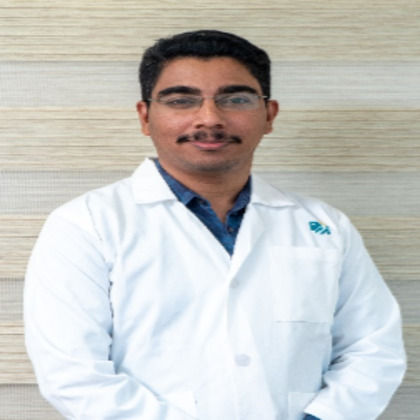
Dr. Aswin S. Krishna
Hepatologist
10 Years • MBBS, MD (Internal Medicine,MMC), DM (Hepatology, MMC), PDF(Fellowship in Liver Transplanatation)
Chennai
Apollo Hospitals Greams Road, Chennai
(125+ Patients)
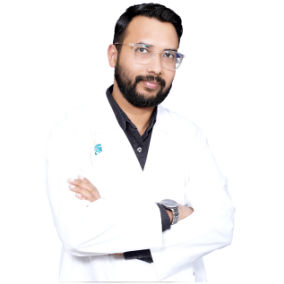
Dr. Aakash Garg
Gastroenterology/gi Medicine Specialist
12 Years • MBBS, DNB (Medicine), DrNB (Gastroentrology).
Bilaspur
Apollo Hospitals Seepat Road, Bilaspur
(150+ Patients)
Consult Top Specialists

Dr. Sushith C
General Physician
2 Years • MBBS
Bengaluru
PRESTIGE SHANTHINIKETAN - SOCIETY CLINIC, Bengaluru

Dr. E Prabhakar Sastry
General Physician/ Internal Medicine Specialist
40 Years • MD(Internal Medicine)
Manikonda Jagir
Apollo Clinic, Manikonda, Manikonda Jagir
(150+ Patients)

Dr. Pukhraj Singh Jeji
Gastroenterology/gi Medicine Specialist
13 Years • MBBS, MD ( Internal Medicine ), DM ( Gastroenterology ), Consultant - Gastroenterology
Bhubaneswar
Apollo Hospitals Old Sainik School Road, Bhubaneswar

Dr. Aswin S. Krishna
Hepatologist
10 Years • MBBS, MD (Internal Medicine,MMC), DM (Hepatology, MMC), PDF(Fellowship in Liver Transplanatation)
Chennai
Apollo Hospitals Greams Road, Chennai
(125+ Patients)

Dr. Aakash Garg
Gastroenterology/gi Medicine Specialist
12 Years • MBBS, DNB (Medicine), DrNB (Gastroentrology).
Bilaspur
Apollo Hospitals Seepat Road, Bilaspur
(150+ Patients)
Consult Top Specialists

Dr. Sushith C
General Physician
2 Years • MBBS
Bengaluru
PRESTIGE SHANTHINIKETAN - SOCIETY CLINIC, Bengaluru

Dr. E Prabhakar Sastry
General Physician/ Internal Medicine Specialist
40 Years • MD(Internal Medicine)
Manikonda Jagir
Apollo Clinic, Manikonda, Manikonda Jagir
(150+ Patients)

Dr. Pukhraj Singh Jeji
Gastroenterology/gi Medicine Specialist
13 Years • MBBS, MD ( Internal Medicine ), DM ( Gastroenterology ), Consultant - Gastroenterology
Bhubaneswar
Apollo Hospitals Old Sainik School Road, Bhubaneswar

Dr. Aswin S. Krishna
Hepatologist
10 Years • MBBS, MD (Internal Medicine,MMC), DM (Hepatology, MMC), PDF(Fellowship in Liver Transplanatation)
Chennai
Apollo Hospitals Greams Road, Chennai
(125+ Patients)

Dr. Aakash Garg
Gastroenterology/gi Medicine Specialist
12 Years • MBBS, DNB (Medicine), DrNB (Gastroentrology).
Bilaspur
Apollo Hospitals Seepat Road, Bilaspur
(150+ Patients)
More articles from Fatty Liver
Frequently Asked Questions
Q1: Can fatty liver disease be reversed without medication?
Yes. Lifestyle changes—especially 7–10% weight loss, a Mediterranean style diet, and regular exercise—can reverse fatty liver naturally and improve NASH in many people.
Q2: What is the best diet plan for fatty liver disease?
A Mediterranean style pattern emphasising vegetables, legumes, whole grains, lean proteins, nuts, seeds, and olive/mustard oil. Limit sugary drinks and ultra processed foods. See our liver smart plate for guidance.
Q3: How much weight do I need to lose to reverse fatty liver?
About 5% body weight reduces liver fat; 7–10% often improves NASH; ≥10% may improve fibrosis. Work with your clinician to set a safe, sustainable plan.
Q4: Are statins safe if I have fatty liver?
Generally yes. Major guidelines support statin use in fatty liver to reduce cardiovascular risk. Your doctor will monitor liver enzymes and overall risk.
Q5: What tests should I do to monitor fatty liver disease at home?
You can’t perform imaging at home, but periodic labs (ALT/AST, HbA1c, lipid profile) plus tracking waist and weight are helpful. Apollo 24|7 offers home collection for tests like HbA1c and lipid profile.
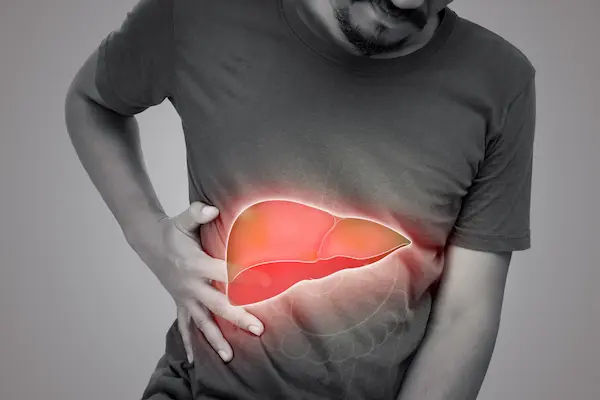
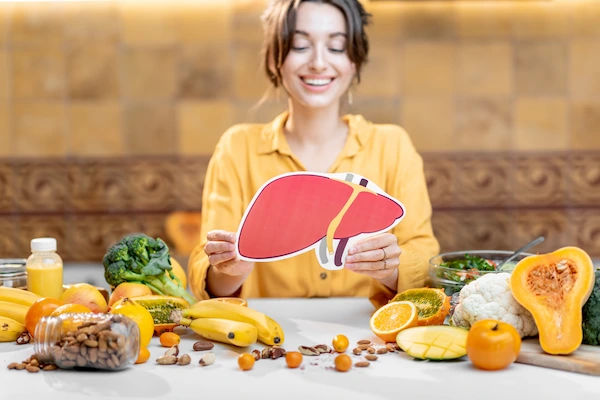
.webp)
